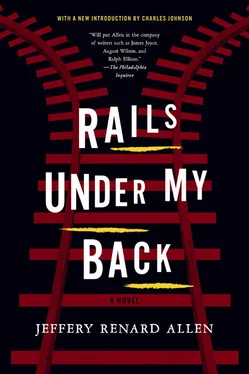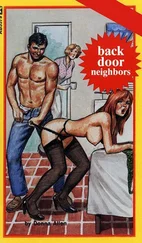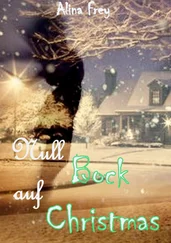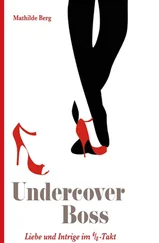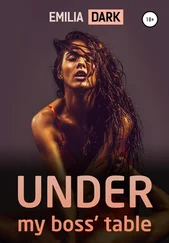The train broke out of the darkness, rose at the sky. Jesus saw it with his body. Through the window, sunlight struck a glancing blow against his cheek. He followed the sun into himself. The car shook from side to side as if trying to rouse him awake. He opened the suction caves of his eyes. A constant stream of images rushed past the window: the cuts and valleys of the river (another one of the city’s twelve), angles of sail jutting from water into sky, row upon row of three-story buildings — yes, he let his sight multiply — cluster upon cluster of projects, and an occasional house. A small bathtub toy of a boat puffed gray bubbles of smoke as it angled through Tar Lake — still today, motionless — pushing water before it and tugging a huge ship behind. He laid his head back on the dusty seat and felt the sun getting hot on his shoulders and neck.
A red roar. The train spit him onto the elevated platform a mile from Red Hook, the closest it could take him. With a dull gleam of clanking metal, it pulled away from the station, the wooden planks under his feet humming and vibrating. He stood on his perch and watched and waited. Double distance. Sight took solid shape reaching to his brain. The city hung enduring. Central and South Lincoln and a river stringing them together. He sought an exit. No silk thread of elevator to lower him through the web of scaffolding down to the street below. Instead, a twine of stairs, unraveling strands of metal that spiraled up from the street. He piloted these stairs, three flights.
In patient black lines and arrows, a bus sign mapped his journey. Yes, the bus could deliver him to Red Hook. But he wanted — needed — to complete the final leg of the journey on foot. It’s about heart. He walked.
Streets gaping and torn with road work. Birds still as shadows. Swift-moving clouds. A haze of sunlight. He rubbed his eyes, which burned from being closed, and cleaned dry ash from his throat. One-eyed beer bottles poked from grass, watching him. Heat radiated in a circular fashion throughout his body. He moved carefully under the shocked eye of the sun, a calf trying out new legs. Engines erupted, rousing dogs in an alley, barking in the shadows, then the sun snuck into the alley and a dog bursted bright, chasing a light-winged pigeon. Scoped Jesus with ears erect, a TV antenna. Jesus hoped the dog would stray into distance. It did not. Jesus kicked a pop can and sent it clattering. At the end of the block, a wino lay curled up in a doorway, vomit rolling like lava down his lips.
Long time since Jesus had seen vomit like that. Long time. (How many years ago? Count them.) Decatur. Great-aunt Beulah, Lula Mae’s sister, was bedridden after a heart attack. Her wasted frame barely made a ripple in the sharp-white hospital sheets (not remembered mounds of yellow flesh propped against her home pillows), plastic tubes following the lines of her throat, moving toward the curve of her slow-breathing chest, then trailing off. And John — this man he knew as his father, wild in the face, sensing the stuff in Jesus and Hatch, their young blood purring, gurgling, lifted high, struggling to be heard — John snuck Jesus and Hatch from under the hopeful eyes of the family into the morning, the sun’s bare ribs poking through the clouds, Jesus and Hatch perched in the back seat of John’s gold Park Avenue, a huge ship of a car. They went burning up the straight lines and smooth planes of the highway, John driving with perfect ease, one hand on the steering wheel, or no hands at all, using his knees (didn’t need no guardrail to keep the car on track with John squeezing the steering wheel between his knees, narrowing the highway, making it skinny) or chest (man and machine leaning as one toward Kankakee); he and Dave (his main man, running buddy, kin by marriage, adopted blood) would hold contests, one steering while blindfolded, then the other steering with his nose, teeth, or chin, or toes ; and one eye on the rearview mirror, yes the rearview mirror where Jesus’s baby boots once dangled white — somebody had stolen them, along with John’s radio and the whitewall tires — and kicked to the motion and speed, dancing; and the highway unraveling like a bandage, a narrow road darkened by trees and underbrush, the car rushing and bouncing, and him swaying to the motion — the two of you stuck your hands out of the open window, feeling the air rush past — his stomach sucking in against itself. John would wheel the car off the road and into every bare field, free of cornstalks, bearing down fast on hip-hopping hares, trying to run them out onto the road, but no luck, since rabbits were spasm-quick, breaking from one clump of brush to another, running for the high grass, thickets, the trees, just escaping by the skin of their buck teeth, and John tiring of the hunt; and thirsty, charting a course — the Kankakee River following and flowing beside the road, the river in his memory flowing brown, heavy, and slow (slow cause John never speeded inside city limits), always there, always working, never tiring, like Lucifer, my uncle, so-claimed — to a liquor store, over in Kankakee cause Decatur was a dry county then, and John bought bottles and bottles of gin, bottles and bottles of tonic water, John mixing drinks for the three of them, potent drinks in plastic cups, and they drank in the dense shadows of the pear trees — fourteen trees, count em, where they felled fruit with broom handles to satisfy hunger and adventure — in Beulah’s backyard, leaves like thin fingers of cloud, a wandering smell of wetness, drinking through the afternoon and into the night, he and Hatch playing musical chairs but without music, without chairs, until Hatch babbled something about blacks in Africa being short on corn bread, and he, short on ham hocks; then it came, someone pulled the chairs from under their stomachs, it came, pink, flowing, stinking, he and Hatch taking turns, their stomachs rebelling, John laughing all the while, carrying them to the car, black John invisible in the night, diamond ring sparkling on the steering wheel. They couldn’t have been more than thirteen.
He and Hatch were close then, the very name Hatch as familiar and comforting as his own. They were related by blood, and though they differed in shade — he as yellow as sunlight on an open field, and Hatch, evening shadow — he could see in his cousin some trace of his grandmother’s appearance. Kin in will and act. Cutting the fool with John. John, bet you can’t catch us! John chased them round and round the courtyard, them running on three-, four-, five-, six-year-old legs, their screams lifting from the mouth of the copper-filled fountain. You boys scream like girls! John said, chasing them, but actually restraining himself, moving slow, cause his short bulldog legs contained a terrible momentum, the blurred speed of hot pistons. Close then. Double-teaming John on the basketball court. (John always won.) Cutting the fool in church, propelling their farts with paper fans. Or pitching and batting in the living room with a broom handle and a rolled-up pair of socks. And basketball with a bath sponge and lampshades for hoops. Standing tall in the swings, the chains tight in the tunnels of their hands, pumping their legs and knees, carrying the swings in arcs above the ground, slanting into the sky, the chains shaking and creaking. Pedaling their bikes with slim strong ankles, pedaling, fast eggbeaters, guiding the bikes zigzag through the streets, wind whistling past the ears, drawing back on the handlebars, like cowboys pulling back on reins, balancing their bikes, and the front wheel rising for the wheelie, a cobra raised and ready to strike, and the two of you rode the snake for a half block or more. And in quieter moments, doctoring the broken wings of dragonflies with Band-Aids or cutting the lights from fireflies with a Popsicle stick and saving the sparkling treasure in a mason jar. Driving down to Decatur, the speed of flight, fields of cornstalks bent like singers over microphones, the sun sinking into the fields like spilled wine, and the headlights stabbing through the darkness, and scattered trailers like discarded metal cartridges, where John bought Buddha— weed, he called it — from white trash.
Читать дальше
